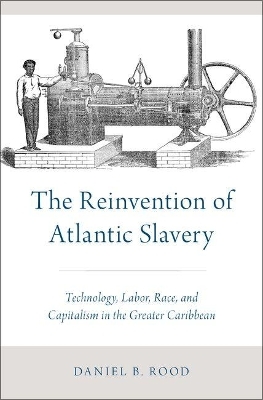
The Reinvention of Atlantic Slavery
Oxford University Press Inc (Verlag)
978-0-19-065526-6 (ISBN)
The Reinvention of Atlantic Slavery shows how, at a moment of crisis after the Age of Revolutions, ambitious planters in the Upper US South, Cuba, and Brazil forged a new set of relationships with one another to sidestep the financial dominance of Great Britain and the northeastern United States. They hired a transnational group of chemists, engineers, and other "plantation experts" to assist them in adapting the technologies of the Industrial Revolution to suit "tropical" needs and maintain profitability. These experts depended on the know-how of slaves alongside whom they worked. Bondspeople with industrial craft skills played key roles in the development of new production technologies like sugar mills. While the very existence of skilled enslaved workers contradicted the racial ideologies underpinning slavery and allowed black people to wield new kinds of authority within the plantation world, their contributions reinforced the economic dynamism of the slave economies of Cuba, Brazil, and the Upper South. When separate wars broke out in all three locations in the 1860s, the transnational bloc of masters and experts took up arms to perpetuate the Greater Caribbean they had built throughout the 1840s and 1850s. Slaves played key wartime roles on the opposing side, helping put an end to chattel slavery. However, the worldwide racial division of labor that emerged from the reinvented plantation complex has proved more durable.
Daniel B. Rood is assistant professor of history at the University of Georgia. He is the coeditor of Global Scientific Practice in the Age of Revolutions, 1750-1850.
Introduction - Atlantic Inversions
Ch. 1 - A Creole Industrial Revolution in the Cuban Sugar-Mill
Ch. 2 - "El Principio Sacarino": Purity, Equilibrium, and Whiteness in the Sugar-Mill
Ch. 3 - From an Infrastructure of Fees to an Infrastructure of Flows: The Warehouse Revolution in Havana Harbor
Ch. 4 - Wrought-Iron Politics: Racial Knowledge in the Making of a Greater Caribbean Railroad Industry
Ch. 5 - Sweetness and Debasement: Flour and Coffee in the Richmond-Rio Circuit
Ch. 6 - A Tropics of Bread: Entangled Technologies and the Greater Caribbean Origins of the US Flour Industry
Ch. 7 - An International Harvest: The Development of the McCormick Reaper
Epilogue
Notes
Index
| Erscheinungsdatum | 20.05.2017 |
|---|---|
| Zusatzinfo | 33 hts |
| Verlagsort | New York |
| Sprache | englisch |
| Maße | 179 x 241 mm |
| Gewicht | 522 g |
| Themenwelt | Geschichte ► Allgemeine Geschichte ► Neuzeit (bis 1918) |
| Geisteswissenschaften ► Geschichte ► Regional- / Ländergeschichte | |
| Geschichte ► Teilgebiete der Geschichte ► Wirtschaftsgeschichte | |
| ISBN-10 | 0-19-065526-7 / 0190655267 |
| ISBN-13 | 978-0-19-065526-6 / 9780190655266 |
| Zustand | Neuware |
| Haben Sie eine Frage zum Produkt? |
aus dem Bereich


